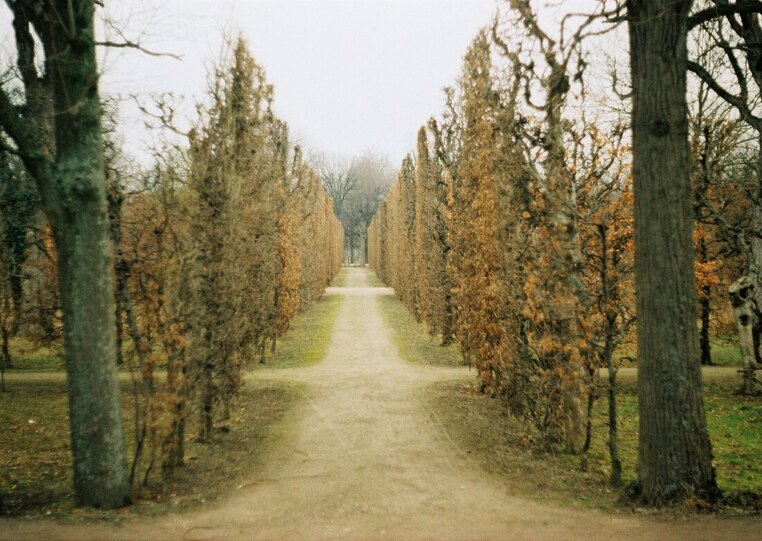|
11/25/2020 Jeanne by Avra Margariti Jaroslav A. Polák CC Jeanne Cake tasting is an expensive activity, but the Clown King knows how to pull a few strings. If the cakes arranged before them--many tiers, vibrant fondant, sugar roses-- aren’t exactly the freshest, well. She doesn’t mind, and her guest won’t know the difference. Since the Clown King found the reanimated spirit of Jeanne d’Arc wandering the streets, ragged and bug-eyed, talking about the celestial voices in her head and shouting at the annoyed passers-by to take arms, the Clown King has taken it upon herself to teach the dead martyr how to navigate a saintless age. Not only survive, but live too. So far, it’s been harder than she thought. The little martyr can be defiant when she wants to, for all her tendency to take blind orders from angels. It sparks fierce pride inside the Clown King. Sometimes, when she looks at Jeanne out of the corner of her eyes, the martyr is a flame brighter than those that once consumed her. Soon-to-wed couples feed each other flaky slivers of cake all around them, discussing the merits and shortcomings of each. “You’re trying to tempt me,” Jeanne says, more excited than suspicious. “It’s a sin to partake of food for enjoyment, not survival.” “I’ve never known you to back down from a challenge.” Be it the War or the Stake, she never yielded. She would rather break, than bend. “You’ll like it. It’s like bread, but sweeter.” The brides and grooms gasp at the lack of decorum as the adolescent soldier-prophet-saint stuffs her face full of chocolate cake, the ganache frosting spiderwebbed across her chin. Later, they pack the remaining cakes in paper boxes and take them to the local homeless shelter. Jeanne’s complaints as she carries her share of the weight are only perfunctory. They stay and chat with the shelter’s residents as they eat, rumbling stomachs finally filled. “There’s no use starving yourself,” the Clown King says once they’re on their way again. “Some people don’t have the choice.” Jeanne indulges in a juvenile roll of her eyes. Although she’s been dead for centuries, she’s still no older than nineteen, despite her usual demeanor that calls to mind ancient and inexorable things, like tree trunks marked densely with annual growth rings. The Clown King remembers how trees bear the scars of past forest fires and shudders. “You and your hero complex. You want to be the one who saves everyone. A bit of a martyr, too. I should know.” “I’m not nearly as self-sacrificing as you think,” the Clown King replies, thinking of her troupe waiting for her back home. Of every friend, lover, and past acquaintance. Their memory alone warms her through and through. “I chose people, and I choose them every time. Being with them is a gift, not a burden.” The Clown King’s goddess wants her happy, comfortable, and fed. She wants to teach this feeling, this certainty, to her wayward ghost as well. # The sun-drenched vineyard smells heady and euphoric with fermentation. The Clown King rolls up her trouser legs and takes it all in. Beside her, Jeanne looks unsure, hugging her elbows with her palms, wingbone shoulders tucked in. She has led an army to battle, conversed with her god’s messengers, and been condemned for heresy all in less than two decades on this earth, yet she’s never tried cake before. Never gone grape-stomping either. “I don’t know about this,” the martyr ghost says. “Watch me,” the Clown King says, stepping into one of several large vats, grapes cool and silky between her bare toes. “Then decide for yourself.” Jeanne joins in eventually, eyes wide and glittering as she feels the purple pulp under the skin. A wrong step, a small yelp. She slips and falls on her backside, staining dark her soldier’s clothing. Not with blood, but with would-be wine. The Clown King, a master of slapstick comedy, makes herself stumble and fall too. The little saint laughs as they make angels in the grape pulp. If it’s blasphemous, she doesn’t say so. The scent of smoke, metal, and charred flesh that always seems to cling to her is eclipsed by drunken grapes, grass, and sun. “Are you a woman?” Jeanne asks eventually. The Clown King considers this. “Sometimes.” “I don’t think I’ll ever be one. I was never a child, either. Never this carefree.” The Clown King climbs to her feet, pulling the gloomy ghost up with her. She makes a mental note to take Jeanne to a costumier next and let her go wild with clothes and gender. The vineyard’s proprietor gives them a case of last year’s reds as payment, and again they set off toward the house where the Clown King and her troupe have made their home. Pierrots, harlequins, and mimes cheer as the wine flows into tin cups. The Clown King inhales the notes of blackcurrant, relishes the sweet tang. “You too,” she tells Jeanne, who hovers in the doorway, awkward in the face of the troupe’s fond revelry. “Have a sip.” “I know what the blood of the lord tastes like,” Jeanne says. She drinks deep and straight from the bottle. “How is it?” the troupe asks with expressions of exaggerated curiosity across their grease-painted faces. Jeanne splutters, laughs. It’s the first time the Clown King has heard such a sound from the dead martyr. “Divine.” The troupe erupts in raucous cheers as Jeanne dances on the threadbare carpet, twirling round and round like a gangly ballerina. They pour themselves more wine, toasting all the martyrs and the mummers working for cake and wine, all the saints and clowns of the world.  Avra Margariti is a queer Social Work undergrad from Greece. She enjoys storytelling in all its forms and writes about diverse identities and experiences. Her work has appeared or is forthcoming in SmokeLong Quarterly, The Forge Literary, Baltimore Review, The Journal of Compressed Creative Arts, and other venues. Avra won the 2019 Bacopa Literary Review prize for fiction. You can find her on twitter @avramargariti. Comments are closed.
|
AuthorWrite something about yourself. No need to be fancy, just an overview. Archives
April 2024
Categories |

 RSS Feed
RSS Feed
